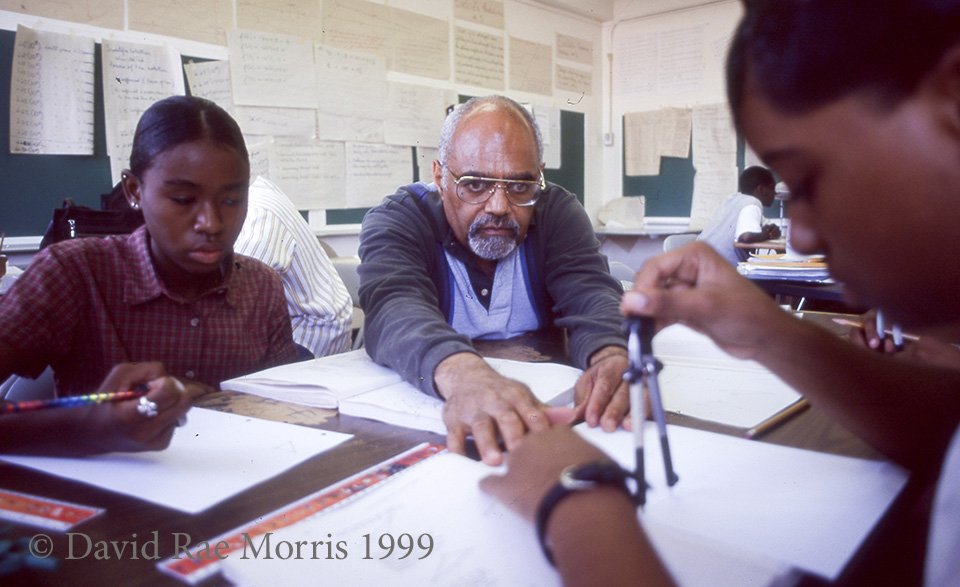
Radical Equations: The Algebra Project Drawing on the Past: The Roots of Our Movement
Reading by Charles E. Cobb and Bob Moses
The Algebra Project draws on the organizing tradition of the Civil Rights Movement to help young people find their voice and achieve math literacy.
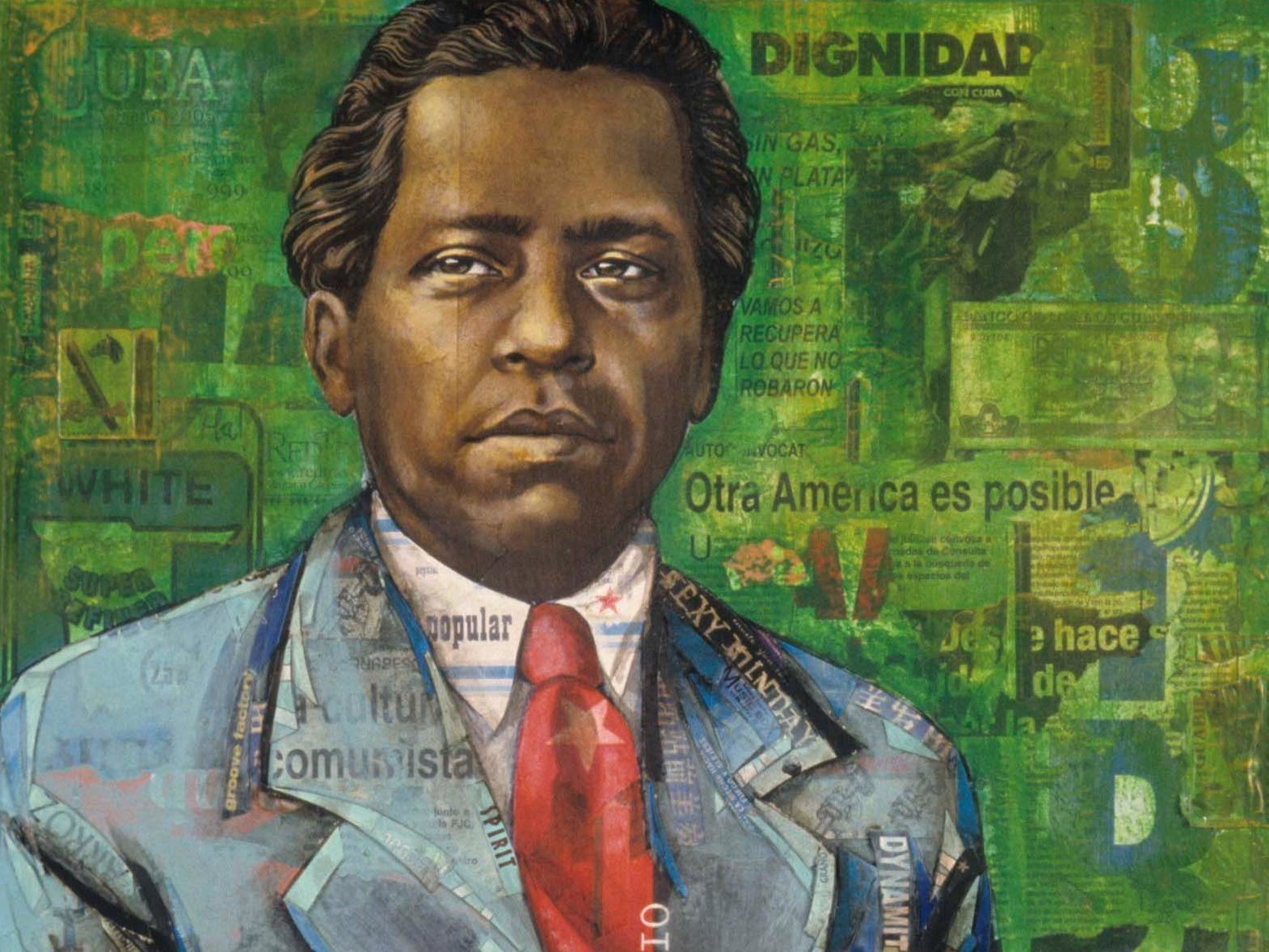
Nicolás Guillén: The Struggle against Two Racisms
Reading by Carmen Gómez García
In this essay, excerpted from a chapter on the history of Cuban social poetry, Gómez García introduces the reader to Guillén’s poetry about racism in the United States. This is an ideal text for classes on poetry, Spanish, 20th-century U.S. history, and Latin American history.

Murder Mystery: Shining a Light on the Story That the Newspapers Left Out
Lesson by Allyson Criner Brown, Deborah Menkart, and Jenice L. View
The murder of Mississippi voting rights activist Herbert Lee, and subsequent murder of witness Louis Allen, were key events in the history of the modern Civil Rights Movement. However, they were barely mentioned in the local press at the time and the story is missing from textbooks and public memory today.
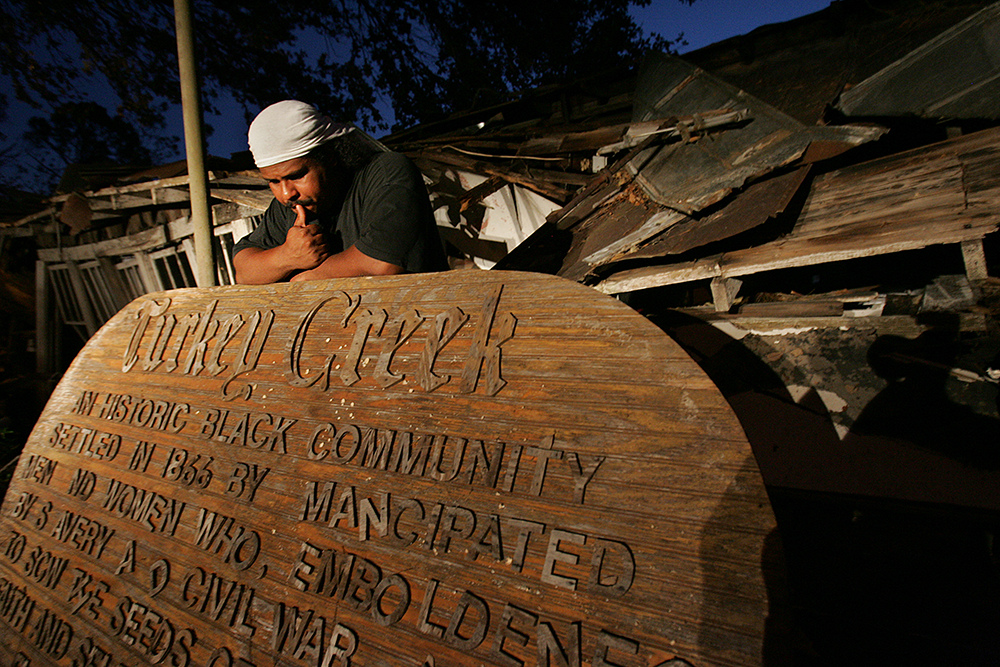
Looking for Justice at Turkey Creek: Out of the Classroom and into the Past
Teaching Reflection by Hardy Thames
Students study the African-American community of Turkey Creek, Mississippi, exploring whether the changes in the community relate to social and economic growth or social justice issues and then create projects with research and action components.
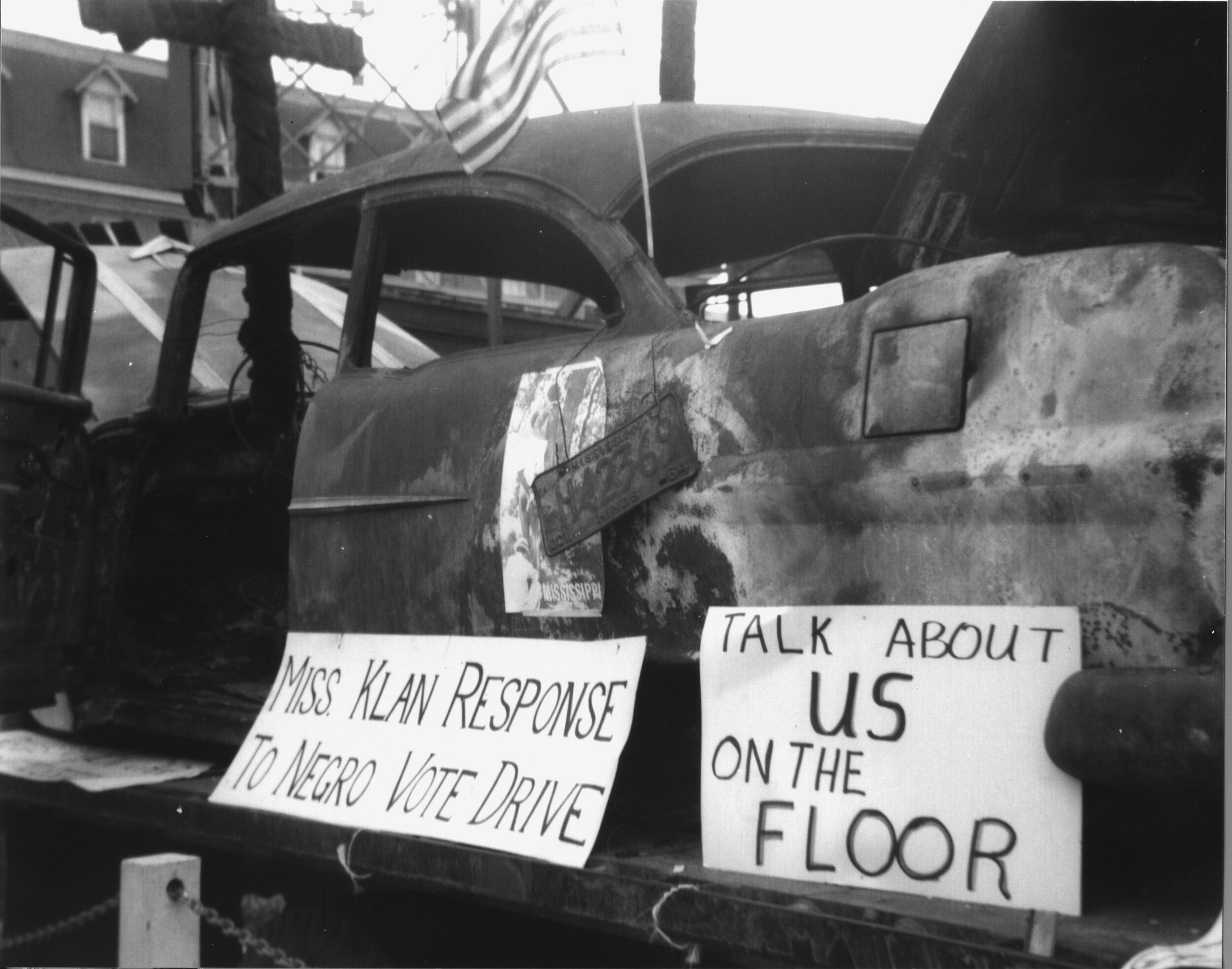
“Is This America?” 50 Years Ago Sharecroppers Challenged Mississippi Apartheid, LBJ, and the Nation
Reading by Julian Hipkins III and Deborah Menkart
The Mississippi Freedom Democratic Party arrived at the 1965 Democratic Party Convention in Atlantic City on a bus with more than 60 sharecroppers, farmers, housewives, teachers, maids, deacons, ministers, factory workers, and small-business owners. Students can learn from the Mississippi Freedom Democratic Party about how to take on the Goliaths in politics.
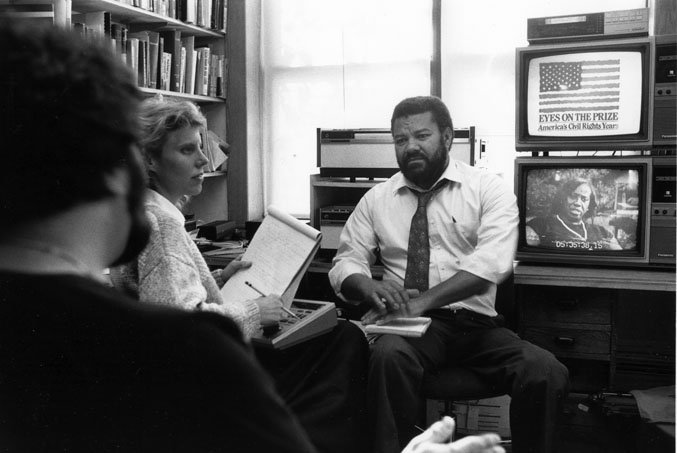
Teaching Eyes on the Prize, Teaching Democracy
Reading by Judy Richardson
Richardson shares key insights and considerations for teachers when using the Eyes on the Prize film.
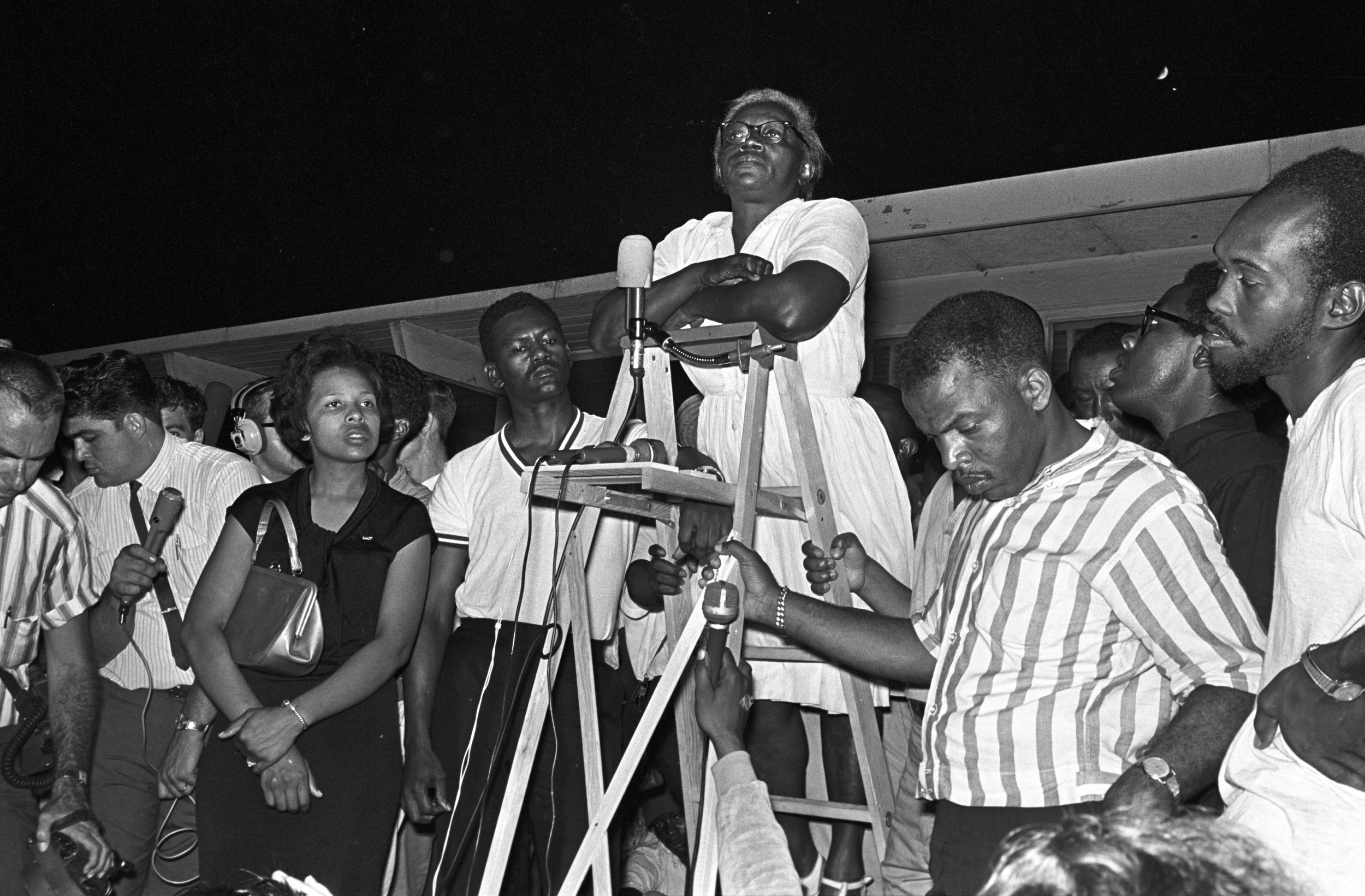
What Would You Do? Students Grapple with Risks Faced by Voting Rights Activists
Lesson by Cristina Tosto
Students come to understand the level of bravery displayed by local activists and ordinary people in Mississippi when they simply completed a voter registration form by imagining themselves in the role of someone who lived during the modern Civil Rights Movement. The names of the activists are revealed after they’ve considered what they might do in the role they’ve been given.

The Role of Black Landowners in the Civil Rights Movement
Teaching Idea by Tiferet Ani
Black landowners provided an indispensable support base for the Civil Rights Movement in Mississippi, as documented in the 82-minute Emmy Award-winning documentary Dirt and Deeds in Mississippi. Find teaching ideas for use in conjunction with film: a Socratic Seminar, a textbook revision project, and ideas for further research.
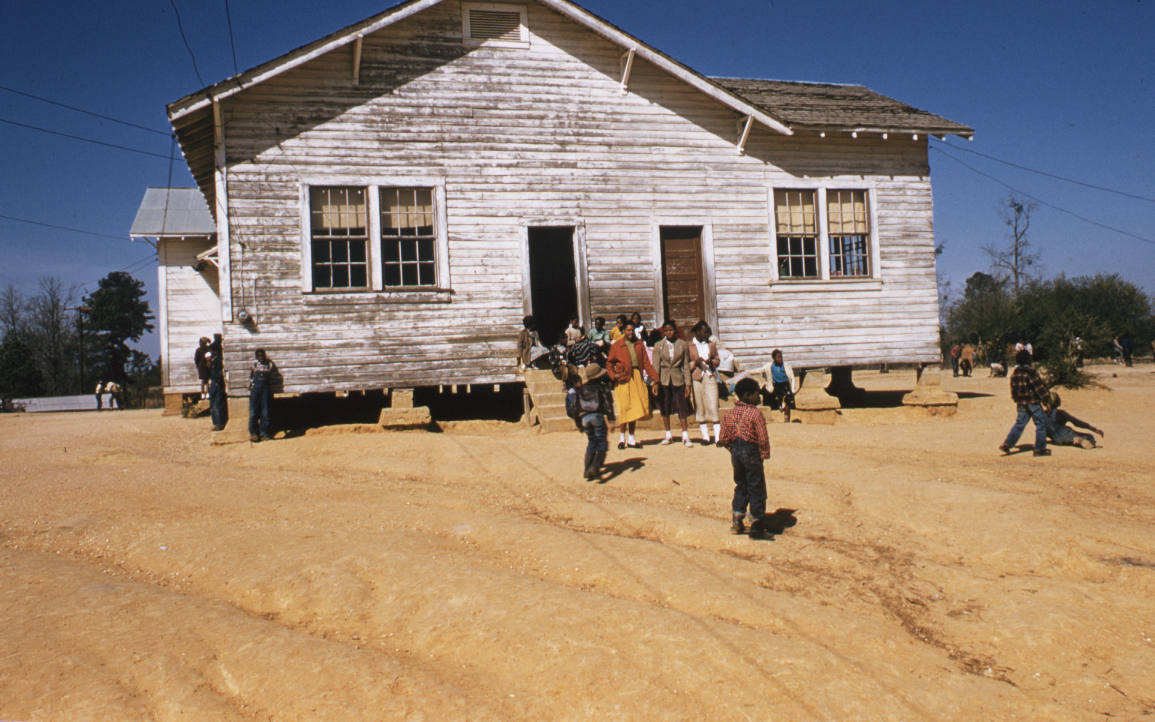
Gallery Walk on the History of Education in Mississippi Through the Lens of Race
Lesson by Julian Hipkins III and Deborah Menkart
Using textbook excerpts, data, quotes, legislation, and images, this gallery walk begins pre-Mississippi in the ancient city of Timbuktu, moves through Reconstruction and Jim Crow, and carries on to present day issues.
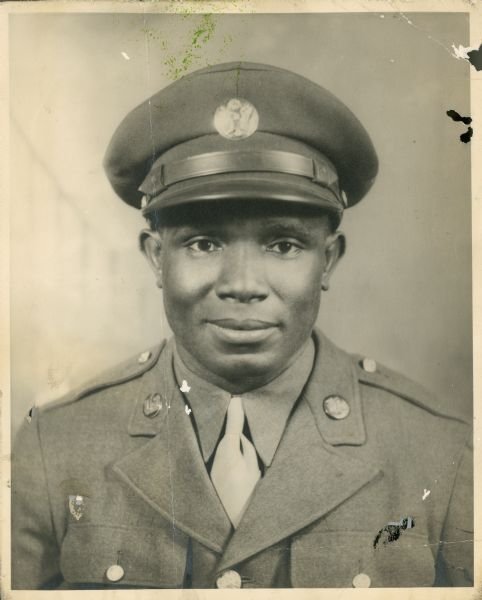
Patriotism over Democracy: A Critical Analysis of U.S. History Textbooks
Reading by James Loewen
Examination of how U.S. history textbooks misrepresent the role of the federal government in foreign and domestic policy, minimizing the potential power of the people.
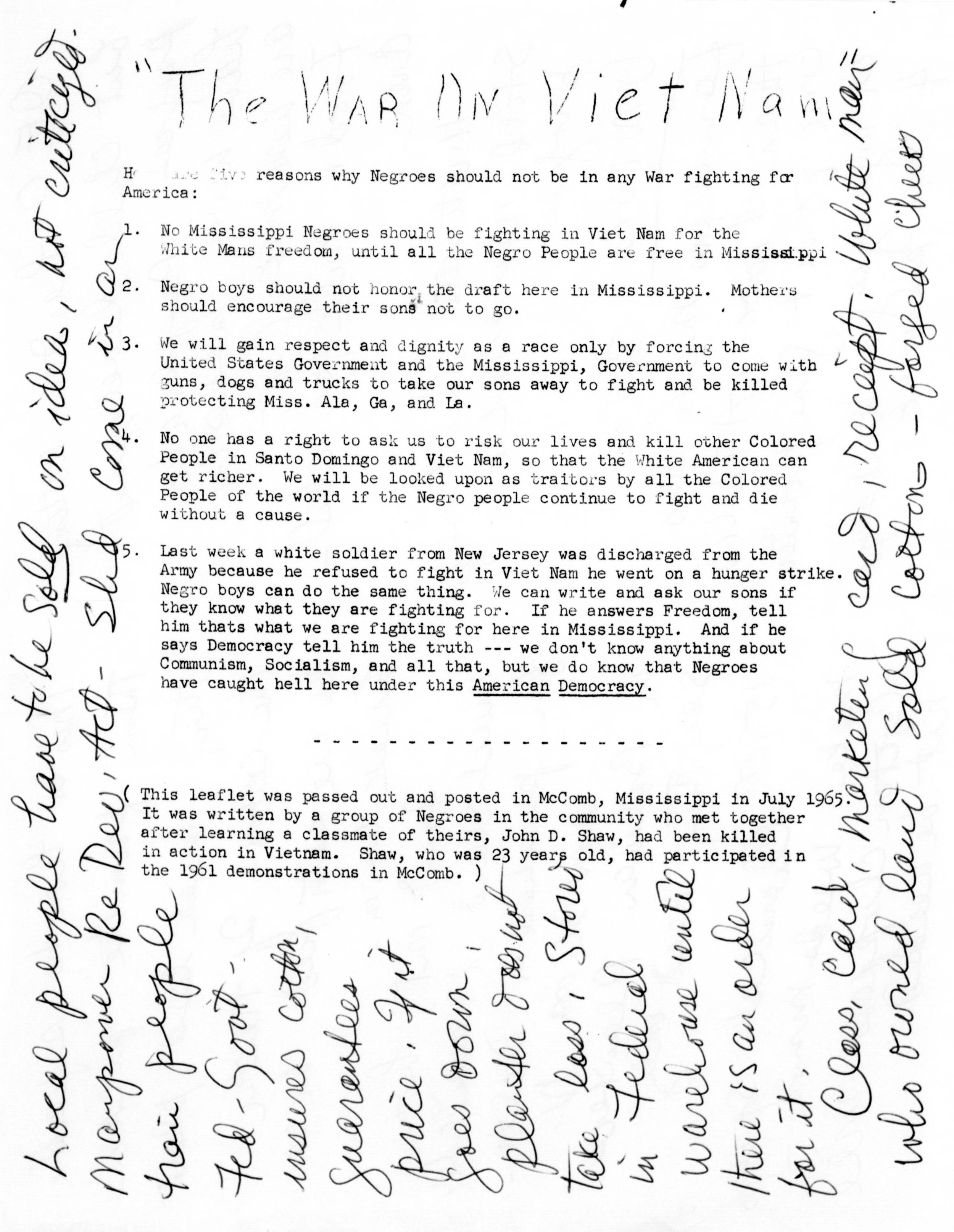
McComb Statement Against the Vietnam War, July 1965
Reading by SNCC Digital Gateway.
In July 1965, a group of young activists in McComb, Mississippi’s Movement learned that John Shaw, one of their former classmates at Burglund High School, was killed in combat in Vietnam. Their statement written in response about the reasons why African Americans should not serve in Vietnam was the first anti-war statement from within the Civil Rights Movement. It paved the way for SNCC to take a stance against the war.
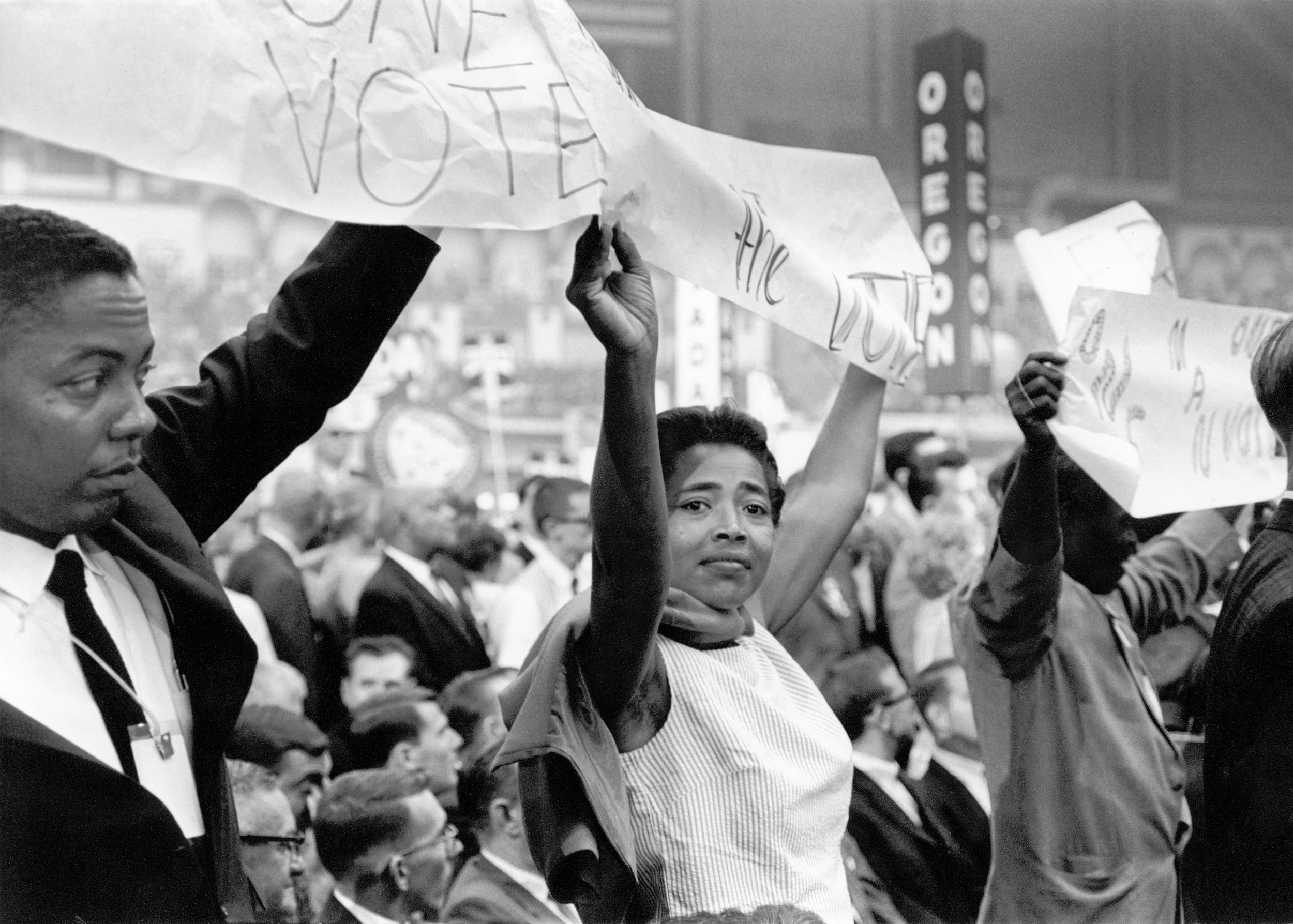
Freedom Now: The Civil Rights Movement in Mississippi
Lesson by the Choices Program of Brown University
This curriculum explores the history of the civil rights movement at a local level. Mississippi was one of the most racially divided states in the South. It symbolized the oppression and violence of white supremacy, and the strong Black movement that rose up in response. The unit is divided into three parts. Each part includes:
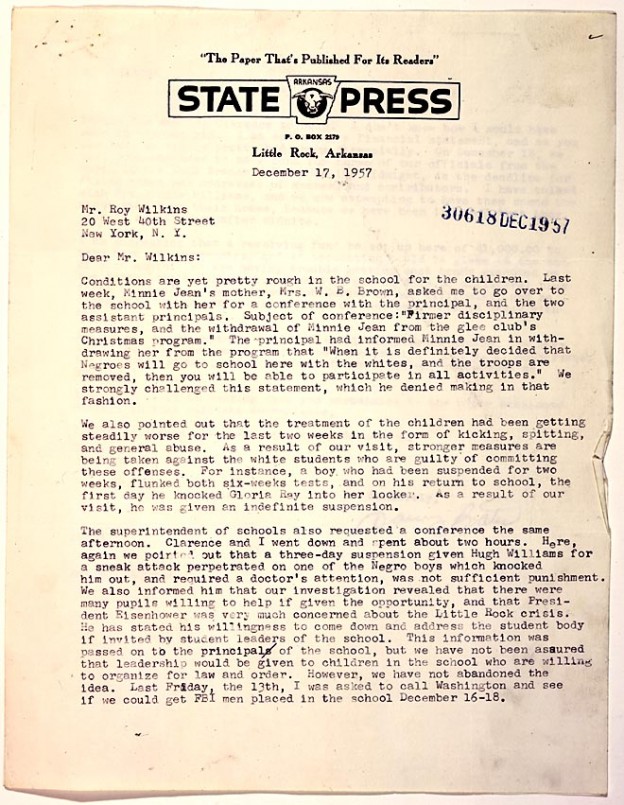
My Students Convinced Me to Let Go of Old School Teaching
Teaching Reflection by Susan Nail
A teacher reflects on incorporating primary documents and group work into her teaching.

Mississippi Burning Is Still Burning: A Critical Film Review
Reading by Judy Richardson
A critical review of the film Mississippi Burning, which characterizes the local African American community as passive victims of racist violence and lifts the role of the FBI to heroic proportions.
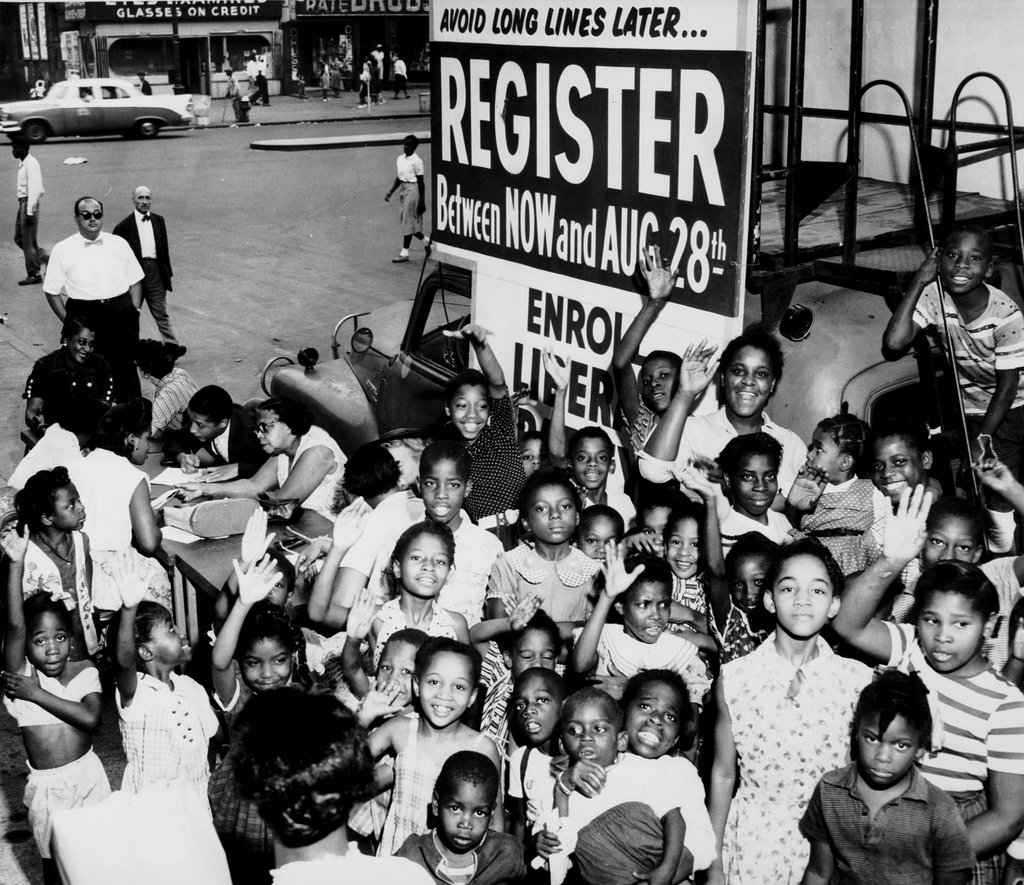
Voting Rights Act: Beyond the Headlines
Reading by Emilye Crosby and Judy Richardson
Key points missing from most textbooks about the Voting Rights Act. Many textbooks approach the history of this important legislation through a top-down lens that gives most of the credit to President Lyndon Johnson, along with Dr. Martin Luther King Jr., but the VRA came into being through intensive organizing and activism spearheaded by the Black community.
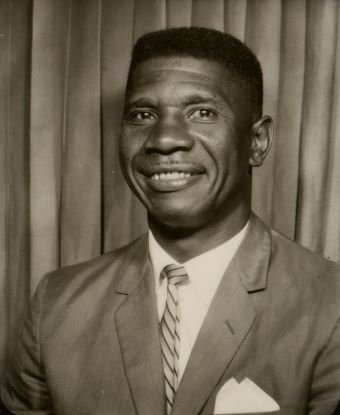
Meet Medgar Evers: Introduction to the Southern Freedom Movement
Lesson by Deborah Menkart and Jenice L. View
Medgar Wiley Evers was one of Mississippi’s most impassioned activists, orators, and visionaries for equality and against brutality. This is an interactive lesson to introduce students to his work and inspire them to learn more.
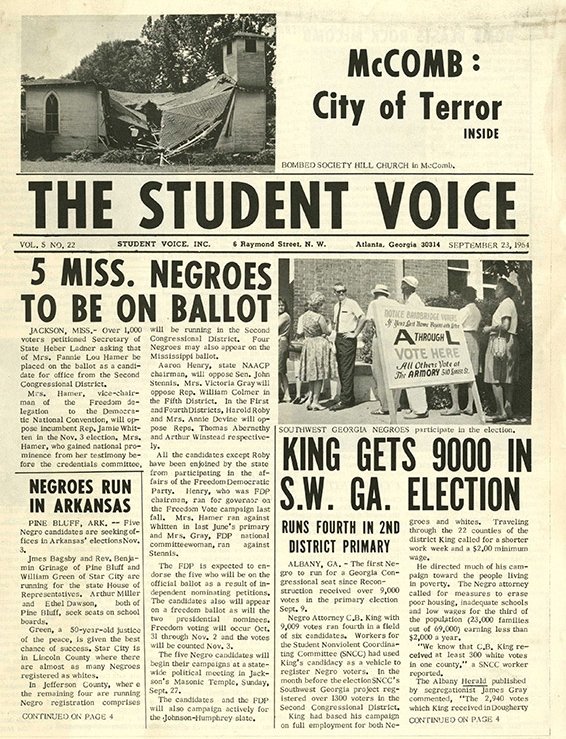
History Detectives: Voting Rights in Mississippi, 1964
Lesson by Deborah Menkart and Jenice L. View
This lesson introduced students to the history, strategies, and challenges facing by people in Mississippi in their struggle for voting rights in the early 1960s.
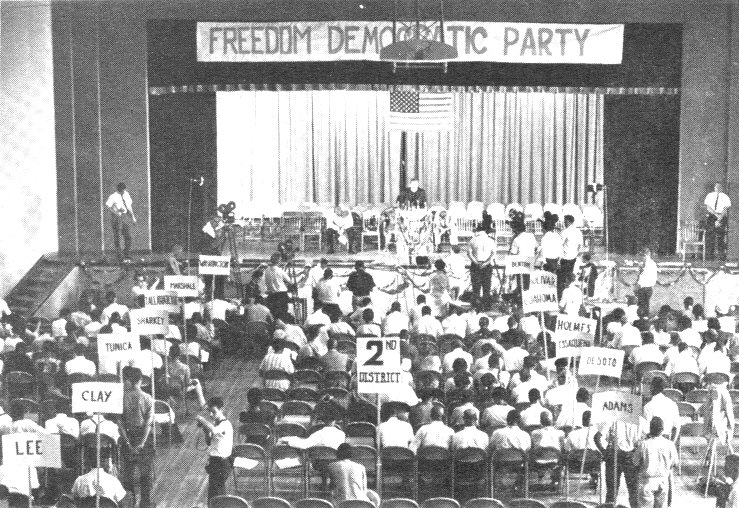
Sharecroppers Challenge U.S. Apartheid
Lesson by Sara Evers, Julian Hipkins III, Deborah Menkart, and Jenice L. View
This lesson explores one of the most important events in the fight for true democracy in the U.S., when a coalition of grassroots activists challenged the Mississippi political system, the federal government, and the national Democratic Party to abide by the U.S. Constitution.
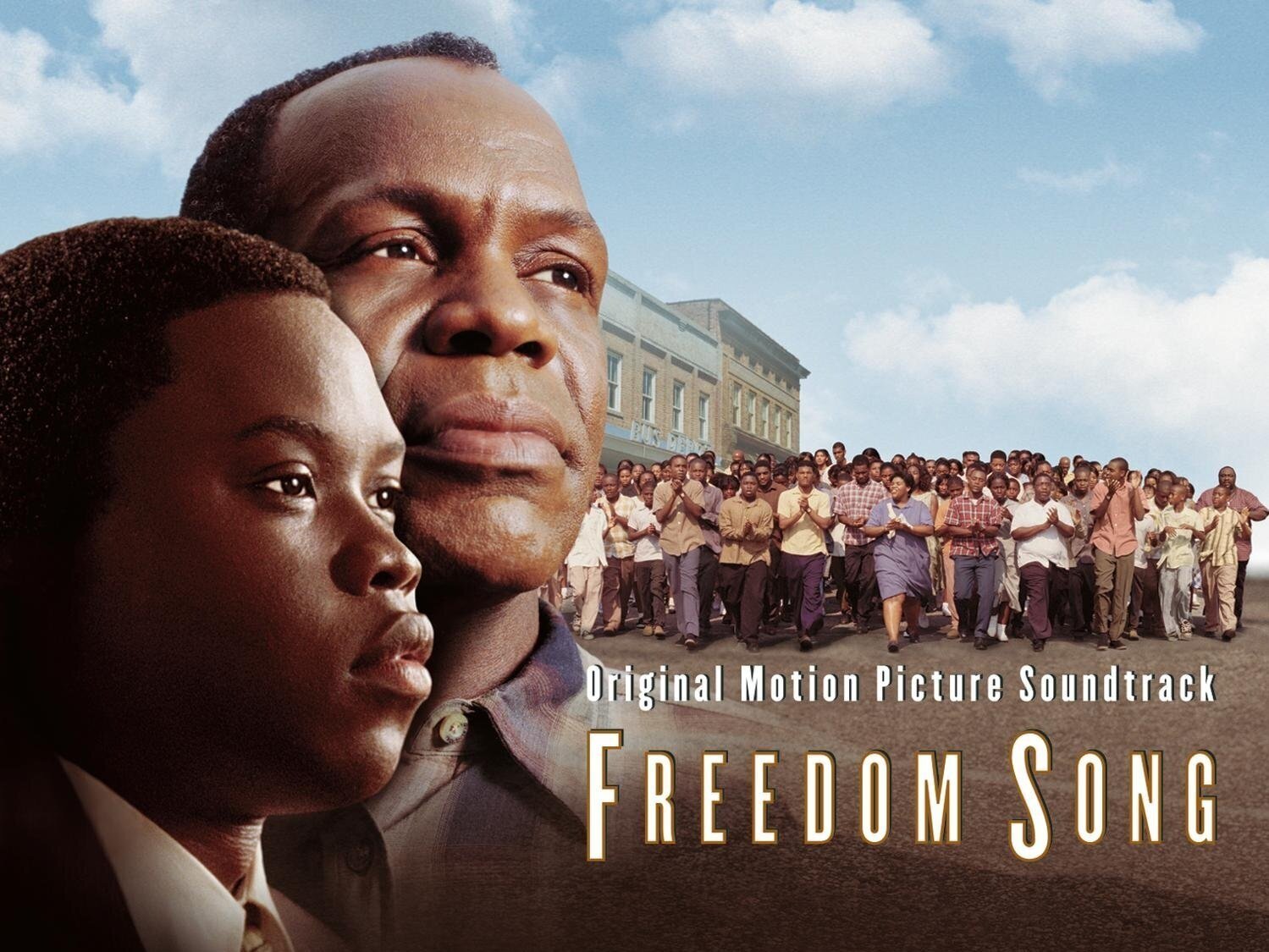
Freedom Song: Tactics for Transformation
Lesson by Alana Murray
Freedom Song is by far one of the best films for secondary students about the Civil Rights Movement. Aimed primarily at secondary students, this lesson seeks to provide students with the critical viewing skills needed to analyze the complex interplay between oppression and resistance in the Civil Rights Movement.

Reinventing My Teaching about the Civil Rights Movement
Teaching Reflection by Alana D. Murray
Murray describes how she rethought her teaching about the Civil Rights movement to align pedagogically with Ella Baker's ideals, relying on the critical role of colleagues and traditional local leadership in creating and sustaining change.
